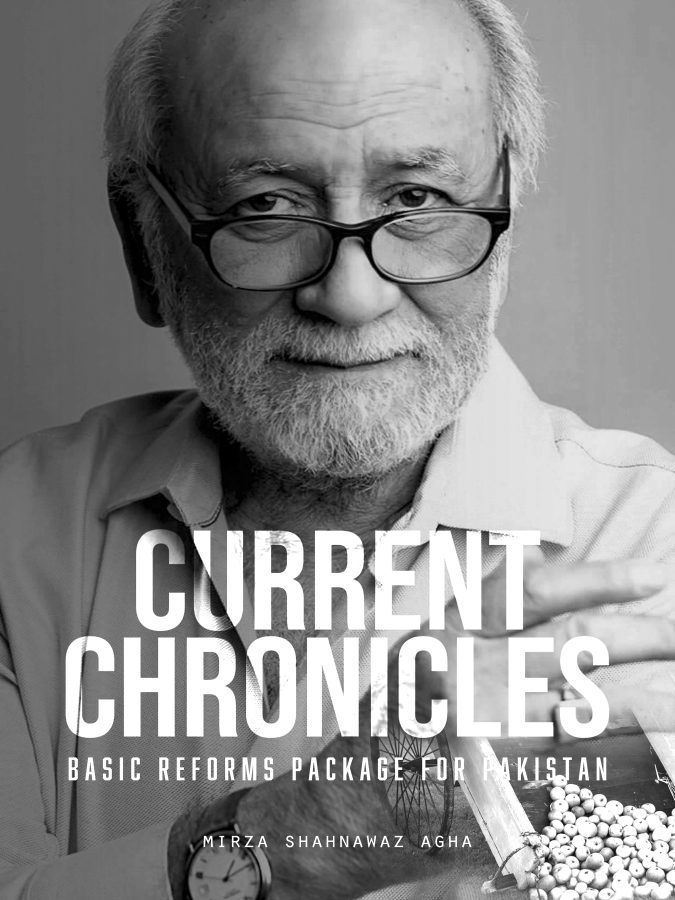Mirza Shahnawaz Agha
THIS book is authored by Mirza
Shahnawaz Agha a research scholar
and an entrepreneur from Karachi. The author a regular contributor to our columns has been a close friend of late Mr Zahid Malik the founder of Pakistan Observer and shared many a common views for reforms in the Islamic Republic of Pakistan.
Mention of Mr Zahid Malik and one of his speeches on the subject is part of published matter in the book. The book addresses the basic structure of governance in Pakistan as has been upheld in the last seven decades. The book is an outcry from the perspective of the people, on governance and the structure of the State as has been for ever, in the opinion of the Author.
The Judiciary, the armed forces, the civil bureaucracy and the Parliaments together comprise government and they consume eighty-two per cent of all the taxes and borrowings this country collects annually. From an economic view this in effect means that we as a Nation State are spending 82% to manage 18%! The text of the book challenges this status quo based on the ideology of the State and offers solutions that would reverse this dilemma. The Author seeks that reforms being essential should be considered and the power to cause this change must be reverted back to the people who are not truly represented. He claims that the assemblies are made up of people from captive constituencies and defend the status quo which is neither political nor democratic.
The book seeks to radically re-legislate laws that we follow as they were made on the colonial philosophy of law making where people are servants and the institutions are rulers. The laws that cause contempt, subversion and sedition must all be watered down to allow for reforms that can catapult Pakistan to the front end of civilisation and development. Towards the reforms package the book seeks 100% urbanisation and land management based on productivity instead of the present structure. It seeks corporate farming, corporate mining, industrial parks and tourism as prime revenue generators. The urbanisation plans warrant converting population areas into municipal companies and as a product quoted on the stock exchanges.
To predicate production the Author wants land revenue to be the only source of government revenue and all taxes to be consigned to the bin. Interestingly enough all this needs to be done based on the revaluation of the Rupee. He wants the Rupee to be linked to gold a tangible instead of an alien printed medium of exchange. From the perspective of editorial team of Pakistan Observer contents of this book warrant serious consideration both by governors and governed. It is a recommended reading most from perspective of research objectives.










